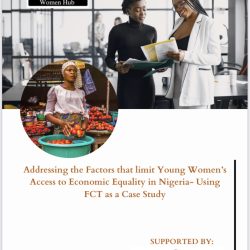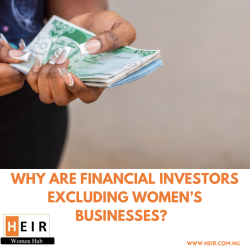Gendered Biased Lending Practices limit access to funding for Female-Led and Owned Businesses in Nigeria
Out-of-date, gender-biased lending practices often mean female entrepreneurs are more likely to get higher interest rates, smaller loan amounts and increased penalties for mistakes.



